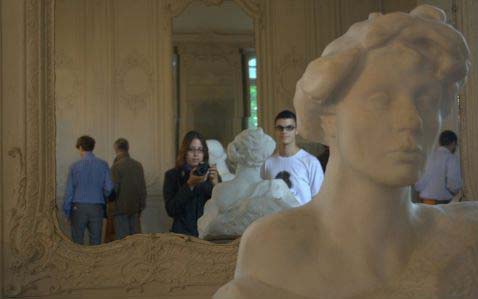Emotions, Spirit, Mind & Body: Jungian Holistic Psychotherapy, 2

In my last post, I started to explore the nature of holistic case studies, and how Jungian therapy is truly holistic.
 We can see this even more clearly if we look at some of the ways in which radically different elements of the personality interact — or conflict! Jung, in his work on psychological types, showed that the functions and attitudes that exist in our psyche can often show us very different aspects of who we are. Sometimes this can seem so true that different aspects of who and what we are can seem completely opposed.
We can see this even more clearly if we look at some of the ways in which radically different elements of the personality interact — or conflict! Jung, in his work on psychological types, showed that the functions and attitudes that exist in our psyche can often show us very different aspects of who we are. Sometimes this can seem so true that different aspects of who and what we are can seem completely opposed.
Feeling and Rationality
For instance, there’s a fundamental split between rational, logical thought, and our own subjective reactions to things. Could two things be more fundamentally opposed? Yet here’s the important truth: both are parts of our journey to wholeness. It’s not enough to say, “Oh, I’m a thinking type” or “I’m a feeling type”. To experience psychological wholeness, essential that we have the experience that both of these capacities co-exist within us. They both are part of us, and a person needs both.
Intuition and Sensation
We experience a similar pair of opposites when it comes to intuition and sensation. Sensation refers to our perceptions by means of the sense organs. Sensation is awareness grounded in the here and now. It’s very present-oriented. Sensation puts its faith in the kind of hard facts that are immediately available to the senses. It sees a situation in terms of the details, rather than a comprehensive pattern. Intuition is pretty much the opposite of sensation. It’s perception by way of the unconscious. Intuition is our sense of things often guided by hunches and things the individual “just knows” — although he or she would have a hard time putting into words just why. Intuition is future-oriented, and sees situations in terms of large, broad patterns. Again, to truly experience psychological wholeness, it would be essential that we experience our capacity for both intuition and sensation. 
Body and Mind
Another significant pairing explored in depth by key Jungian figures in holistic case studies such as Marion Woodman and Joan Dexter Blackmer is the need to integrate mind and body Mind and body aren’t really opposites. Yet in the 2,000 year history of the Christian west, it’s been very easy to ignore the body. As Blackmer reminds us, …in order to develop the spirit and rational consciousness, Christianity had historically to declare the body untouchable — a kind of second-class citizen…. Untouched, repressed, denied, the body moves into the shadow, where dwell those aspects of ourselves we are loathe to look at. Then the ego loses a direct connection to the body as a source of natural wisdom and energy. This kind of splitting produces excruciatingly painful dilemmas and divisions for modern people: Rationality and feeling, sensation and intuition, body and mind — all form part of a comprehensive unity in a Jungian holistic case studies.
[cta]
